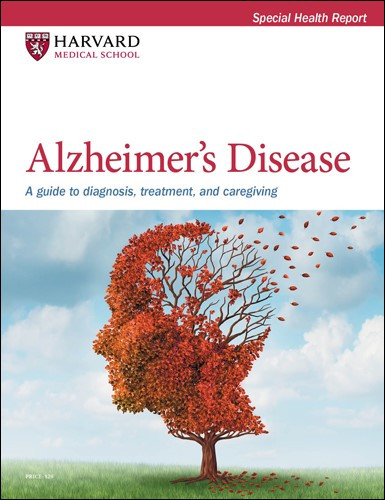Should I worry about dementia risk from antihistamines?
Ask the doctor

Q. I take antihistamines for allergies, and a friend said they can cause dementia. I want allergy relief, but not if the price is developing dementia. Should I worry?
A. You raise an important question, but you might not like my answer. I assume you'd like a definite answer, like "No, don't worry" or "Yes, so look for another kind of treatment for your allergies." However, all I can say, based on conflicting evidence, is "Maybe."
Many frequently used medicines, including nonprescription medicines, have what are called anticholinergic effects. Examples include antihistamines (like you take) and certain medicines to improve sleep, treat urinary incontinence, reduce nausea, ease tense muscles, or treat Parkinson's disease — medicines used by millions of people. Theoretically, these drugs might increase the risk of dementia by blocking a particular brain neurotransmitter or increasing brain inflammation. In the past decade, several studies have suggested that these pills might increase the risk of dementia, while other studies have found no risk. And all the studies are inherently flawed.
A flawless study to answer this question would involve recruiting many hundreds of identical twins. Starting in childhood, one of each twin pair, at random, would be "allowed" to use medicines that had anticholinergic effects whenever necessary while the other twin would be "prohibited" from doing so. This would continue for 60 years or more, and then you'd see if the twins who were allowed to use the medicines with anticholinergic effects were more likely to have developed dementia than the ones who weren't — after taking into account all the other factors in their lives that might increase dementia risk. Obviously, such a study would not be feasible. Even if it were, it would take 60 years to get an answer — too long for you or me.
So, biomedical scientists are doing studies that are feasible but that produce less-than-definitive answers. These studies involve following large numbers of people for several decades and keeping track of all the medicines they take, the results of their health examinations, and the diseases they develop. As I said, such studies have come to different conclusions.
So, how do I put these mixed results together, for myself? I think twice about taking antihistamines and other medicines with anticholinergic effects. I weigh the symptom relief they give me against the possibility that they may slightly increase my risk of developing dementia. I ask if there are other drugs that might also give me symptom relief, without the theoretical risk of cognitive decline. I also use the lowest possible dose to get symptom relief. As more studies are published, I'll keep you posted about the possible risks of these medicines.
Image: © Visual Generation/Getty Images
About the Author

Anthony L. Komaroff, MD, Editor in Chief, Harvard Health Letter; Editorial Advisory Board Member, Harvard Health Publishing
Disclaimer:
As a service to our readers, Harvard Health Publishing provides access to our library of archived content. Please note the date of last review or update on all articles.
No content on this site, regardless of date, should ever be used as a substitute for direct medical advice from your doctor or other qualified clinician.
















